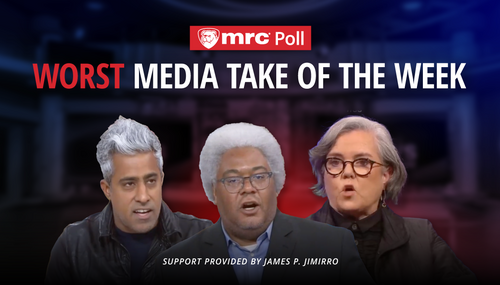Petula Dvorark, Washington Post's designated church-basher, commemorated the closure of a Virginian “pro-life” pharmacy with snide glee in her April 13 column.
“The Divine Mercy Care Pharmacy in Chantilly proudly and purposefully limited what it would stock on its shelves. But it turns out that no birth control pills, no condoms, no porn, no tobacco and even no makeup added up to one thing: No customers,” Dvorak wrote.
“John T. Bruchalski, president of Divine Mercy Care and the doctor who opened the pharmacy, then had to close it, said he wanted a place where pharmacists 'could bring their conscience into the store, rather than hang it up at the door when they entered,'” she continued.
“Shoppers in Northern Virginia apparently weren't clamoring for a place to pick up cough medicine that also didn't sell porn, cigs and mascara. Selections of these wicked products (especially mascara – have you seen the array recently? Glittery! Lengthening! Stiletto lashes! Such naughtiness!) are available in just about every supermarket and big-box store across the country.”
In need of objective analysis, the Post's Metro columnist consulted the founder and co-president of a feminist organization.
“'The marketplace spoke, and women voted with their feet,' said Marcia Greenberger of the National Women's Law Center, a Washington advocacy group.”
Dvorak noted how although in more rural parts of America, similar pharmacies have fared better. But Divine Mercy was in a busy shopping area with many alternatives. “It makes little sense to make another stop to fill a prescription across the street for moral reasons, especially considering that Kmart is probably a regular shopping place for even the most devout Christians,” Dvorak sneered. “I mean, where else can you get a $14.99 cubic zirconia cross, a $1.49 Blessed Mother candle, lawn fertilizer for that lawn your lovely offspring will play on and a crockpot for the church cook-off under one roof?”
What she did find troubling was the idea that in rural areas, it is unjust “permitting pharmacies to dictate what they want to prescribe.”
“'What about places where women don't have alternatives?'” Dvorak quoted Greenberger.
“Perhaps Divine Mercy was doomed by its competition, or maybe, despite the Sunday Mass boosterism of the Divine Mercy business, Northern Virginia Catholics aren't as pro-life the rest of the week,” Dvorak conjectured.
Like this article? Sign up for "Culture Links," CMI's weekly e-mail newsletter, by clicking here.





